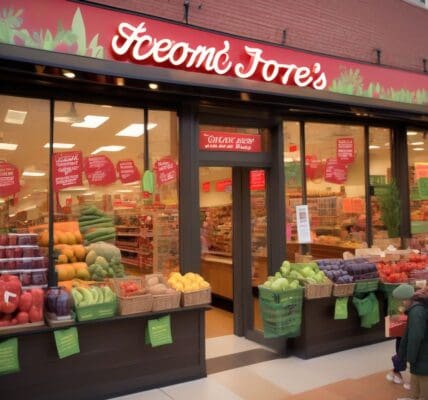In a landmark collaboration, the National Grocers Association (NGA) and United Natural Foods Inc. (UNFI) have released a comprehensive Step-by-Step Guide to FDA Traceability tailored specifically for independent grocers. This initiative comes at a crucial time, as the Food and Drug Administration (FDA) imposes new guidelines requiring enhanced traceability records for specific food items. Thus, independent grocers must equip themselves efficiently to meet these demands by 2026.
Starting in January 2026, the FDA will mandate that all food companies maintain detailed records for a specified range of foods. This requirement includes the necessity to produce these records within 24 hours of any request from FDA or local food safety authorities. This precedent-setting rule represents one of the most significant changes in food safety compliance for independent grocers and distributors in over a decade. With this ruling in mind, the NGA and UNFI’s guide aims to break down the complex 600-page FDA rule into a more digestible format.
The guide includes clear summaries, diagrams, tables, and photographs designed to facilitate understanding and compliance. Furthermore, NGA has enhanced its commitment to supporting its members by launching an online Traceability Center. This center provides access to various templates, glossaries, and even a mock traceability event exercise. These resources will help grocers practically and effectively adopt the new guidelines, ensuring they are not left behind as the industry evolves.
Greg Ferrara, NGA’s president and CEO, emphasized the importance of food safety, stating, “Food safety is always a top priority for our members.” Moreover, he expressed great appreciation for UNFI’s support in this collaborative effort, highlighting the significance of the easy-to-understand resources provided through the guide.
The significance of this guide cannot be understated. Independent grocers find themselves at a crossroads, facing the pressures of compliance while often lacking the resources that larger chains possess. The guidance provided by NGA and UNFI aims to level the playing field, enabling smaller retailers to navigate the complexities of these regulations effectively.
“Staying ahead of regulatory changes is critical for our members,” noted Matt Echols, UNFI’s Chief Corporate Affairs Officer. He acknowledged the vital role that understanding and adherence to these rules play in the safety and well-being of consumers. The partnership solidifies a commitment to fostering long-term solutions that benefit all stakeholders in the grocery ecosystem, especially the independent sector.
Independent grocers often struggle with limited access to compliance resources compared to larger chains. This guide fills a crucial gap by providing resources tailored to the needs and capacities of these smaller businesses. By empowering independent grocers with robust tools and templates, they can enhance their operational efficiency, ensuring compliance without sacrificing the quality of service they provide to their communities.
To obtain the guide, NGA members can request it online, while non-members have the option to access it for a nominal fee. This strategy not only encourages membership but also fosters a sense of community and collaboration among grocers. Independent grocers are integral to the fabric of local economies, and ensuring their compliance also guarantees the safety of the food supply chain.
NGA serves as the national trade organization for the independent grocery sector, representing a vital segment of the food distribution industry. In contrast, UNFI, incorporated in Providence, R.I., has established itself as the largest publicly traded grocery distributor in the United States, reaching over 30,000 customer locations including natural product superstores, independent retailers, and e-commerce platforms.
As we look toward the future of grocery compliance, the launch of this guide signifies a proactive approach to food safety that can pave the way for innovation and improved practices. With the support and resources provided by NGA and UNFI, independent grocers can position themselves not merely as compliant entities, but as trusted pillars of their communities who prioritize food safety above all.
In conclusion, independent grocers must seize this opportunity presented by NGA and UNFI to equip themselves with the knowledge and tools required to meet new FDA regulations. By doing so, they reaffirm their commitment to food safety, consumer trust, and community health.











